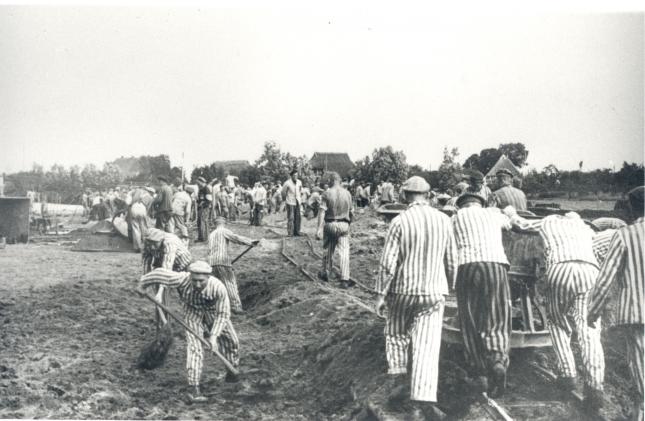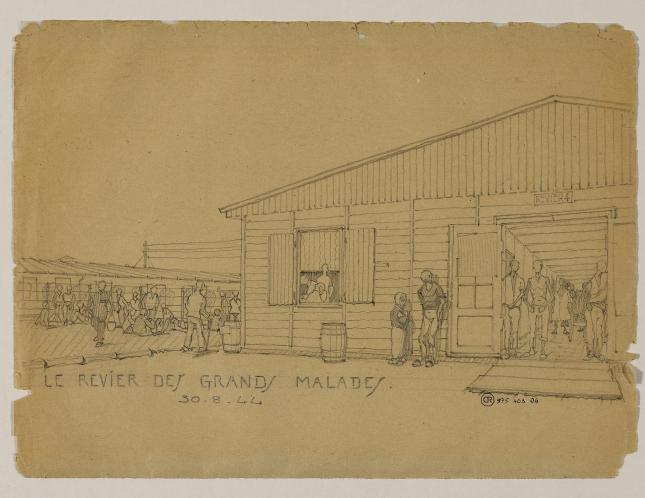Work and Everyday Life
The SS treated newly arrived prisoners with particular brutality so as to break their spirit and demoralise them immediately after their arrival. Life at the camp was determined by a huge number of rules and regulations which were almost impossible to abide by. Prisoners who were caught in breach of these rules not only received the official forms of punishment at the camp (having to stand to attention for very long periods of time, beatings, and detention), but were also subjected to random acts of violence from the SS guards or the block elders. The prisoners’ health quickly deteriorated due to the insufficient food and clothing they received. They were housed in overcrowded quarters which offered no privacy or opportunities for recuperation. The diarrhoea epidemics and the lack of hygiene often led to a dreadful stench in the prisoners’ quarters.


Arrival and Daily Routine
The SS would beat and harass newly arrived prisoners to demonstrate what was in store for them at the camp. The new prisoners often had to stand to attention on the parade ground for long periods of time. Then they had to shower. The prisioners were disinfected and had to undergo the especially humiliating ordeal of having all their hair, including their pubic hair, shaved off. The prisoners were then issued concentration camp uniforms and assigned numbers, which had to be sewn to the prisoners' uniforms.

Work Detail at the Main Camp
Work detail at the camp was marked by violence and harassment. During the first years, most prisoners were forced to do construction and excavation work at the camp, dig canals at the Dove Elbe, or help to transport goods and materials. From 1942, more and more prisoners had to work in the camp’s production facilities, particularly in the brickworks and in the armaments factories,

The Treatment of Sick and Weak Prisoners
Most of the prisoners were very weakened. Those who were ill for a longer period of time were segregated and deported to other camps or killed. The majority of the Pencil Drawing by Félix Lazare Bertrand entitled “Lerevier des grands malades” (“The Sick-Bay for theSeriously Ill”) and dated “30.8.44”. The titlerefers to sick-bay 4. View through the open door with some patientsin the hallway and two more outside the hut. “Muselmänner” died of starvation, debilitation and untreated diseases. From the fall of 1944, the main camp developed into a death camp for the rapidly increasing number of prisoners who were brought back from the subcamps unable to work. The seriously ill and dying lay in “convalescence” without care.